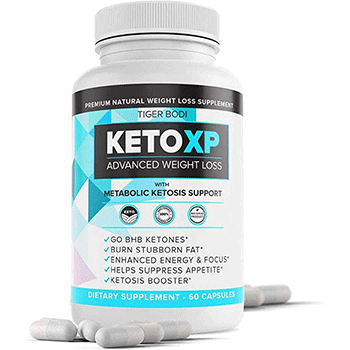
Weight Loss Resistance & Insulin Resistance
Article At A Glance:
- If you’re struggling to lose weight, there’s a chance you have insulin resistance, which results to elevated blood sugar and insuin levels, which can lead to obesity, heart disease and cancer.
- Good news: There’s a lot you can do to control insulin resistance, and promote your goal for losing weight. Read on….
If you’re overweight and struggling to lose weight, chances are you have insulin resistance. Read on to find out how you can control insulin resistance and help you in losing weight.
WHAT IS INSULIN RESISTANCE?
Insulin is a hormone produced in the pancrease. It’s secreted in small amounts throughout the day, and in larger quantities after meals.
Insulin allows cells to take in blood sugar for energy or storage depending on what’s needed.
When it takes blood sugar for storage, it’s converted to fat. Insulin tells fat cells to store fat, and prevents fat from being broken down.
Insulin resistance is when your muscles, fat and liver don’t respond well to insulin, and can’t use the blood sugar in your blood for energy. When cells are insulin resistant, both blood sugar and insulin levels go up significantly.
When blood sugar levels go up, the pancrease responds by producing more insulin. This cycle keeps repeating itself in a vicious cycle (4).
Chronically elevated insulin levels can lead to many health problems including obesity, heart disease and cancer (1, 2, 3).
Due to a build-up of sugar in your blood, it’s converted to fat for storage. And this makes it very hard to lose weight.
HOW CAN YOU TELL YOU HAVE INSULIN RESISTANCE?
You can’t tell you have insulin resistance by how you feel – you have to get a blood sugar test. Some signs of insulin resistance include:
- Skin tags
- Patches of dark, velvety skin especially on the neck and armpits
- Blood pressure of 130/80 or higher
- Waistline of 40 inches in men and 35 in women

RISK FACTORS OF INSULIN RESISTANCE
Certain conditions can make insulin resistance more likely:
LIFESTYLE WAYS TO TREAT INSULIN RESISTANCE
- Avoid or minimize sugar: – Sugars raise insulin resistance and raise insulin levels (8, 9, 10).
- Reduce carbohydrates: – Get rid of those carbs – ugali, rice, potatoes, etc. low carb diet can cause an immediate drop in insulin levels (11, 12).
- Prioritize on proteins: – On the short term, they raise insulin levels, but on the long term, they reduce insulin resistance by reducing belly fat (13, 14).
- Include healthy fats: – Omega-3 fats help reduce insulin levels (15).
- Eat more fruits and vegetables: – Studies show a diet rich in plant compounds increases insulin sensitivity (25, 26).
- Increase soluble fiber: – Soluble fiber has been shown to increase insulin sensitivity and lower insulin levels (30, 31).
- Get enough sleep: – Lack of sleep can harm your health and may increase insulin resistance (16). Even a single night induces insulin resistance (17)
- Exercise: – many studies have found exercise increases insulin sensitivity among men and women with or without diabetes (18, 19).
- Lose weight: – Lose those extra pounds. Studies show excess weight, especially belly fat, increases insulin resistance (20, 21). Try keto diet and ketosis to shed those extra pounds
- Reduce stress: – Too much stress has been shown to increase blood sugar (22). Stress hormones also increase insulin resistance (23, 24).
- Apple cider vinegar: – Apple cider vinegar has been shown to reduce blood glucose after a high carb meal (27).
- Intermittent fasting: – Studies show intermittent fasting lowers insulin levels (28, 29).
- Drink green tea: – Studies show that green tea may help fight insulin resistance (32, 33).
- Turmeric: – Curcumin in turmeric has strong antioxidant and anti-inflammatory properties. It seems to increase insulin sensitivity by reducing free fatty acids and sugar in the blood (49, 50).
- Ginger: – Ginger’s active component gingerol makes sugar receptors on muscle cells more available, increasing sugar uptake (51).
SUPPLEMENTS THAT HELP FIGHT INSULIN RESISTANCE
Several supplements have been shown to help fight insulin resistance:
1) Omega-3 Fish Oil
Studies show omega-3 fish oil from fatty fish may help reduce insulin resistance and triglyceride levels in people with obesity, gestational diabetes and PCOS (34, 35).
7: Keto XP
As noted above, losing weight, especially belly fat, reduces insulin resistance. Adopting a keto lifestyle is a natural way to do this.
Keto XP helps by inducing ketosis, and maintaining it. This supplement will come in handy in shedding those extra pounds.
SUMMARY
As you can see there’s a lot you can do to control insulin resistance, and promote your goal for losing weight.
Which methods are you using? What results are you experiencing? Any questions? We’d be happy to discuss the below.







![4 Simple Ways To Get Into Ketosis [Practical In Kenya]](https://reednaturals.s3.amazonaws.com/wp-content/uploads/2022/09/26133128/4-ways-to-get-into-ketosis-1080x675.jpg)


 The most abundant (and beneficial) ketone is BHB, that your brain and body can use for fuel. You feel all the amazing benefits of ketosis when your body is making and using BHB.
The most abundant (and beneficial) ketone is BHB, that your brain and body can use for fuel. You feel all the amazing benefits of ketosis when your body is making and using BHB.


